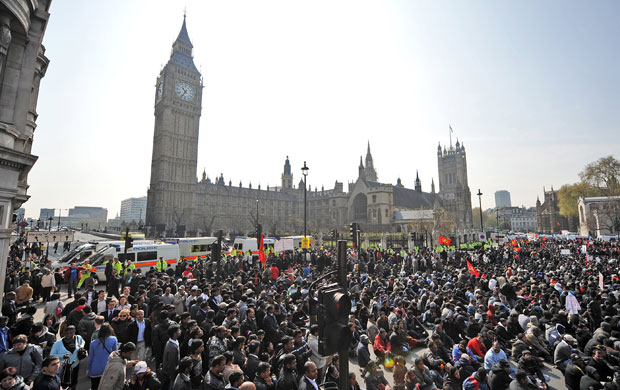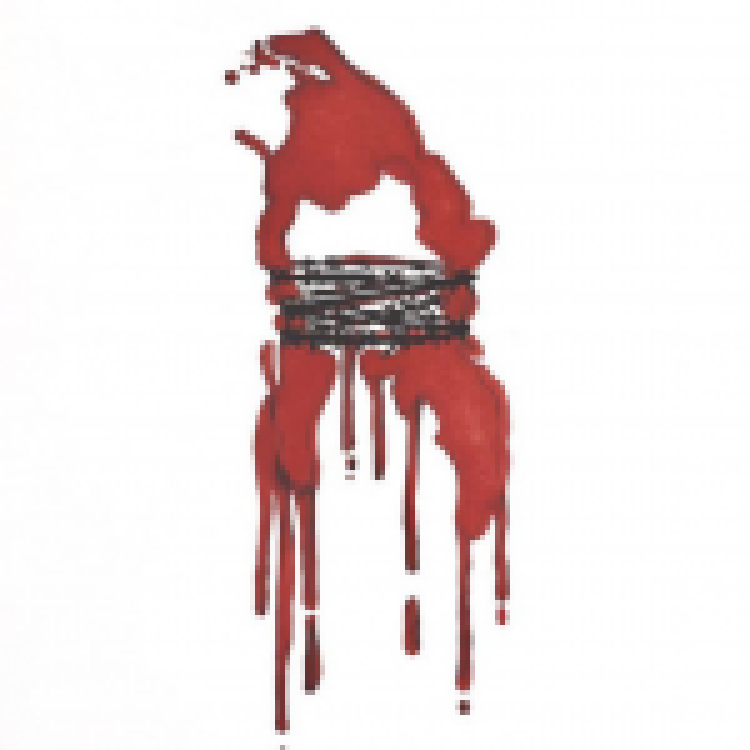
File photograph: British Tamils protest outside the Houses of Parliament in 2009.
British Tamil diaspora organisations have vowed to continue their struggle for justice and self-determination, despite the Sri Lankan government’s proscription of hundreds of Tamils and several diaspora organisations, in a move that has generated shock and outrage across the world.
Speaking to the Tamil Guardian, a representative of the Tamil Youth Organisation UK (TYOUK), said they will "continue to educate and bring awareness to the legitimate aspirations of Eelam Tamils".
The new proscribed list, which renews and broadens a previous 2014 gazette, lists over 300 individuals as proscribed under the terrorist designation law, including an estimated 35 are Tamils who are listed as residing in Sri Lanka. It has listed individuals as old as 97-years-old and as young as 18-years-old. It has even listed some Tamils who have already passed away. The new list also proscribes several diaspora groups based around the world
"To discover that the Tamil Youth Organisation continues to be proscribed by the Sri Lankan state comes to us as no surprise,” said the UK branch of the youth organisation.
“The Sri Lankan state has a track record of trying to intimidate and silence the voices of Eelam Tamils in the island. We call out the injustice and expose the genocidal activity of the Sri Lankan state, in all the forms which they execute. Cultural genocide, through imposing the Sinhala supremacist Buddhist ideology and eradicating the Tamil language, history and culture; structural genocide, in the form of land colonisation and Sinhalese settlements in the traditional Tamil areas to change the demographics of the Tamil homeland. The players of this aggressive effort of Sinhalisation are the Sri Lankan state, in the form of the military, housing authority, forest department, wildlife department, archaeological department, education department. The whole state.”
TYOUK went on to add,
“We believe that this reflects, a strong traction being made by the Eelam Tamil diaspora youth to expose the ongoing genocidal actions of the Sri Lankan state. We, as the Tamil Youth Organisation, will continue to educate and bring awareness to the legitimate aspirations of Eelam Tamils. We will continue to keep our Maveerars in our work and remember their sacrifice to strive for the freedom of Tamil Eelam.”
“We demand that the UK government condemn this action by the strongest possible terms. It is appalling to see the names and addresses of British citizens and we will ultimately hold the Sri Lankan state, and the UK government responsible for their safety."
The British Tamils Forum (BTF), another London-based diaspora organisation, noted that the gazette was signed by Kamal Gunaratne, a "war criminal responsible for genocide" and that the move was taken to "stop all forms of communication between Tamils in the North and East and civil societies political parties and [the] Tamil diaspora”.
"This is a direct assault on UN action, British Tamils Forum and other global Tamil organisations,” the BTF told Tamil Guardian. “The gazette is signed by the notorious General Kamal Gunaratne, a former military chief who is listed in the 2015 OISL report as a perpetrator of war crimes, crimes against humanity and human rights violations, a war criminal responsible for genocide that is serving as the current Secretary of Ministry of Defence.”
“[He] took this action with the intention to stop all forms of communication between Tamils in the North and East and civil societies, political parties and Tamil Diaspora, who are at the forefront of promoting and protecting human rights in the North and East,” the representative added. They went on to state that the move would “further lead to a shrinking democratic space and increased censorship in the North and East, as the government continues to violate human rights of Tamils".
Also read our TG View: Bringing back terror


